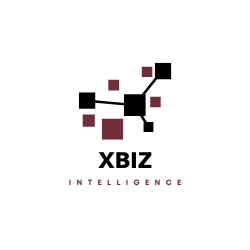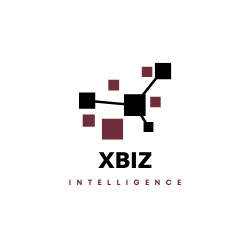

XbizIntelligence News
Your Trusted Source for the lastest Technology & Data News

🎥 Watch Now on YouTube
How Quantum Computing Is Shaping Data Security in 2025
How Quantum Computing Is Shaping Data Security in 2025
Quantum computing is no longer a theoretical concept reserved for scientists and researchers—it’s rapidly becoming a disruptive force in technology and cybersecurity. As 2025 unfolds, the growing capabilities of quantum machines are prompting a global re-evaluation of encryption, data protection, and cyber resilience.
This article explores how quantum computing is impacting data security, the rise of quantum-safe encryption, and what businesses should be doing today to prepare for the post-quantum era.
Executive Summary
Quantum computing’s immense processing power threatens to render traditional encryption methods obsolete. At the same time, it offers unprecedented opportunities for strengthening cybersecurity. From quantum key distribution to new cryptographic algorithms, the race to secure data in the quantum age is accelerating.
This article will cover:
- The fundamentals of quantum computing
- Its implications for encryption and data security
- New advances in quantum-safe cryptography
- Real-world examples and industry adoption
- How businesses can prepare for a post-quantum world
Table of Contents
- Introduction
- What Is Quantum Computing?
- Why Quantum Computing Threatens Traditional Encryption
- Quantum-Safe Cryptography: The Future of Data Protection
- Real-World Applications in 2025
- How Businesses Can Prepare
- CTA & Next Reads
Introduction
Traditional computing relies on bits—values of 0s and 1s—to process information. Quantum computing, however, operates using qubits, which can represent multiple states simultaneously due to a principle called superposition. This allows quantum machines to solve complex problems exponentially faster than classical computers.
In 2025, major players like IBM, Google, and D-Wave are making strides toward scalable quantum systems, with prototypes capable of performing calculations that were once deemed impossible. This progress has massive implications for cybersecurity.
“Quantum computing will break today’s encryption but also give birth to the next generation of secure communication,” says Lisa Tran, Chief Security Officer at XBI Tech Labs.
What Is Quantum Computing?
Quantum computing leverages principles of quantum mechanics—superposition, entanglement, and interference—to process information in fundamentally new ways.
Key Concepts
- Superposition: Qubits can exist in multiple states (0 and 1) at once, exponentially expanding computing possibilities.
- Entanglement: Qubits can become linked, meaning the state of one affects another instantly, regardless of distance.
- Interference: Quantum algorithms use interference to amplify correct solutions and cancel out incorrect ones.
Why It Matters
These principles allow quantum computers to perform parallel computations that would take classical systems centuries to complete. The implications for cryptography are profound.
Why Quantum Computing Threatens Traditional Encryption
Most modern encryption systems rely on the difficulty of factoring large numbers—a task that classical computers find computationally expensive. Algorithms like RSA and ECC (Elliptic Curve Cryptography) form the backbone of secure communications, including banking, email, and VPNs.
However, Shor’s algorithm, a quantum algorithm developed in 1994, can factor large numbers exponentially faster than classical methods. When powerful quantum computers become mainstream, current encryption systems could be broken in seconds.
A 2025 NIST report warns that "nearly 70% of existing encryption methods could be vulnerable within the decade if post-quantum standards are not adopted."
Quantum-Safe Cryptography: The Future of Data Protection
To mitigate this risk, organizations are developing quantum-resistant algorithms—collectively known as post-quantum cryptography (PQC). These encryption methods are designed to withstand attacks from both classical and quantum computers.
Key Approaches
- Lattice-Based Cryptography: Uses complex lattice problems that even quantum computers struggle to solve efficiently.
- Hash-Based Signatures: Employs one-time hash functions for secure authentication.
- Multivariate Cryptography: Relies on solving complex multivariable equations—difficult even for qubits.
- Quantum Key Distribution (QKD): Uses quantum mechanics to exchange encryption keys with unbreakable security.
Industry Adoption
In 2025, organizations like Google, IBM, and Cisco have begun testing quantum-safe algorithms in real-world systems. The U.S. National Institute of Standards and Technology (NIST) is finalizing a suite of PQC standards for global use.
Real-World Applications in 2025
Quantum technologies are already impacting industries:
- Finance: Banks are piloting quantum encryption for secure transactions.
- Telecommunications: Quantum key distribution networks are being deployed in Europe and Asia.
- Government: Agencies are transitioning to hybrid encryption to future-proof sensitive communications.
- Healthcare: Quantum-safe encryption protects medical data during AI-driven diagnostics and remote patient monitoring.
In one pilot program, China’s quantum satellite "Micius" transmitted encrypted data over 1,200 km—marking the first large-scale test of space-based quantum communication.
How Businesses Can Prepare
- Audit Current Cryptographic Infrastructure: Identify where RSA or ECC encryption is in use.
- Adopt Hybrid Models: Combine classical and post-quantum algorithms during transition phases.
- Partner with Experts: Engage cybersecurity vendors offering PQC readiness assessments.
- Employee Education: Train teams on emerging risks and quantum-secure practices.
Preparation must begin now; waiting until quantum computing achieves full maturity will leave organizations exposed.
CTA & Next Reads
Stay Secure in the Quantum Era:
Subscribe to XbizIntelligence for alerts on cybersecurity, quantum tech, and emerging IT trends.
Next Reads
- How Generative AI Is Evolving from Chatbots to Business Co-Pilots in 2025
- The Rising Cost of Data Breaches: Why SMBs Are Now Prime Targets
- Serverless Computing Takes Over: How Teams Are Simplifying Deployments in 2025
Internal Links
- How Generative AI Is Evolving from Chatbots to Business Co-Pilots in 2025
- The Rising Cost of Data Breaches: Why SMBs Are Now Prime Targets
External Links

FAQs About SEO in 2025
What is the #1 SEO ranking factor?
Answer: Helpful, authoritative content that satisfies user intent.
Is link building still important?
Answer: Yes, but relevance and quality matter more than sheer quantity.
How often should I update content?
Answer: At least every 6–12 months to keep it accurate and competitive.
ADVERTISEMENT
Most Read
Stay in the Loop
Get the latest tech and data stories, events, and updates straight to your inbox.

Join the conversation